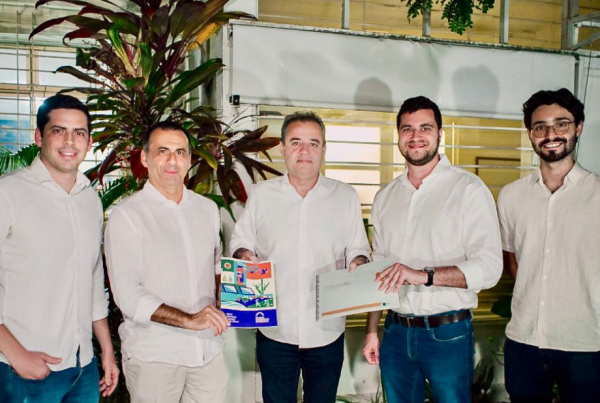Summary –
- In the US, the Trump administration has established that companies will be largely exempt from consequences for polluting the air or water.
- To avoid social chaos, governments will have to carry out fiscal and monetary interventions to reheat the economy.
- Opportunity for a Brazilian Green New Deal.
- Otherwise, the climate agenda will hardly be seen as secondary in the eyes, albeit myopic in the long run, of managers and society.
Perhaps it is interpreted as impoliteness to discuss projections for a post-pandemic world, while the whole society is tense. There is no one who is not concerned about their health and that of their loved ones, as well as the preservation of their professional occupations and income. However, for the resumption of civilization to be founded on sustainable bases, in the broadest sense of the term, the immediate discussion is unavoidable.
There are already moves to encourage predatory activities from an environmental standpoint. The attention of the media and society is completely focused on the expansion of the pandemic and its consequences. Although fully understandable, such a context opens gaps for the advancement of policies that, in normal times, would generate protests from civil society, such as the withdrawal of rights and attacks on environmental preservation.
In the US, the Trump administration this week introduced new guidelines for the Environmental Protection Agency (EPA): companies will be largely exempt from consequences for polluting the air or water. Not even the most naive person imagines that the restrictions will return early, considering the U.S. president’s track record on environmental issues and that the impacts of the onset of the economic crisis will last for at least a few years.
For now, the presidents of the federal legislative houses refuse to put controversial bills concerning the environment to a vote, but this may suddenly change. The inevitable economic crisis derived from the outbreak will require even the most neoclassical economic teams Keynesian measures: fiscal and monetary interventions by the state to reheat the economy, avoiding social chaos.
Already sky-high, the new crisis is directing even more subsidies to polluting industries, such as airlines and the oil and gas industry. This is done without requiring the beneficiaries to do anything in return to mitigate their emissions, further deepening the economy’s dependence on harmful production in the long term, if the externalities and damages caused by climate change are taken into account.
Even if made possible by a health catastrophe, this could be the long-awaited opportunity to avoid the worst-case scenarios predicted as a consequence of the climate emergency, which will generate long and constant cycles of recession and depression, as well as other socioeconomic impacts. For some years now, environmental economists have been pointing to a possible Green New Deal as a way out of the climate crisis: a broad public works investment program that would generate jobs, income, and economic growth, while modifying the entire infrastructure to mitigate polluting emissions.
If, on a global level, the most obvious example would be a large expenditure on new renewable energy plants and energy efficiency programs, a Brazilian initiative in this sense, besides covering the energy aspects, would have as its flagship the massive directing of resources to universal access to water and sewage collection. Associated with the climate agenda would be actions to replant and create national parks, similar to the original New Deal implemented by Roosevelt to overcome the 1929 crash. There is also the possibility of promoting a green industry whose inputs would be the rich Brazilian biodiversity, as long as it is exploited in a sustainable way.
In the Brazilian case, especially at the subnational level, it is also necessary to adapt the entire infrastructure for greater resilience to bad weather. Works of this profile would prevent trillion-dollar expenses by adding up the losses over decades, and would apply a positive multiplier effect on the economy due to the jobs created.
For such an initiative to be viable, it is urgent to point out and publicize this path, before the lobby of polluting industries dominates the discussion about the alternatives for the recovery. In this sense, the Brazil Climate Center, the major articulator of the climate agenda in Brazil among the various sectors involved, can once again be a protagonist and develop a project, in partnership with academic experts, that builds scenarios and alternatives for a “tupiniquim” Green New Deal, as well as disseminate the rationality of this route to the media and the public and private sectors.
Otherwise, the climate agenda will hardly be seen as secondary in the eyes, albeit myopic in the long run, of managers and society. All attention, actions, and resources will be focused on programs that aim for immediate results on public health and job preservation, losing sight of the fact that delaying climate action today will bring a much bigger crisis tomorrow.




